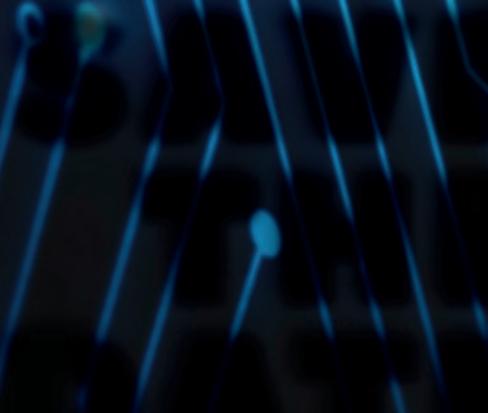
8 minute read
GREEN EYES
APPLIED MACHINERY’S CHRISTIAN MCLEAN SEES THE RECYCLING INDUSTRY’S CHALLENGES AS AN OPPORTUNITY TO GROW THE SECONDARY REPROCESSING MARKET.
Industry reactions to China’s National Sword policy have been mixed, with some concerns about the economic viability of the international recycling trade.
Others, such as Christian McLean, Applied Machinery’s new Recycling Division Consulting General Manager, see China’s policy as an opportunity. Christian believes the industry can capitalise on these new requirements by investing in equipment capable of generating cleaner value-added materials, building up the secondary reprocessing market in the process.
When China began imposing restrictions on the importation of recycled materials and only accepting goods with a contamination rate of 0.5 per cent or less, Australian recyclers were forced to reassess their processing capabilities.
Christian’s more than 17 years’ experience in the environmental, and waste and recycling sectors has seen him develop a passion for sustained operational cost improvements that provide positive environmental outcomes.
This inspired Christian to view the China situation through “green eyes”, seeing the policy as a chance to create a circular economy in Australia.
“China has decided to protect its environment and improve its living standards, which is fantastic and creates a great opportunity for Australia to start developing new systems and waste processing infrastructure,” Christian says.
Christian started his own atypical waste management business earlier
Christian McLean is helping Applied Machinery to enhance its capabilities in plastic processing.
this year called WastePro, which also has a consultancy arm. From there, he formed a collaborative partnership with Applied Machinery, a leading Australian supplier of equipment for the recycling, sheet metal, engineering and plastics industries.
Applied Machinery then brought him on to support unprecedented demand in NSW and Queensland for its recycling solutions. Christian will help with general management, process design and project implementation within Applied Machinery’s recycling division due to his extensive knowledge in plastic processing, recycling and manufacturing.
He plans to use his expertise to guide customers in making informed decisions, not only with their machinery purchases but also assisting them to plan for production agility and lean design thinking to maximise future productivity.
“We want to provide affordable, high-value equipment solutions to our customers which enable them to capitalise on current and future market growth, while also being mindful of their responsibilities and regulatory obligations as waste processors,” Christian says.
Together, WastePro and Applied Machinery hope to support the secondary Australian reprocessing market to achieve the rapid improvements needed to re-enable the international trade of recyclable resources and value-added products.
“We don’t want people buying gold-plated equipment that is poorly utilised, we want it to be fit for purpose and value for money. Recycling is not a simple process. The more detailed thought you can put into it up front before committing capital, the better, but now is definitely the time to commit,” Christian says.
“The support we offer after installation and commissioning and the network connections we provide for supply and offtake of material means we add a lot of value to the customer. We’re not just selling them equipment and saying goodbye.”
Christian hopes his work with Applied Machinery will lead to a wide scale implementation of affordable, high-value equipment across a broad cross-section of the sector.
“The tyranny of distance, reliability of available tonnes and the variable
price of the finished recyclate are marginal to make a strong business case for most of the high-end European or Japanese equipment.
“Reliable, value-for-money gear to get things rolling is what is needed, but most important is to receive government support where available, and get things happening now,” Christian says.
Tackling the issues raised by China is key to Christian’s new position, one he believes requires a triple bottom line approach, a principal he developed at WastePro and brings to Applied Machinery.
According to Christian, the three bottom lines are profitability, the planet and its people. He will be working with Applied Machinery to help Australian businesses achieve all three.
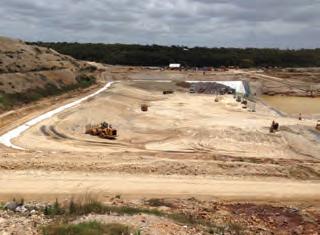
Profitability he says is an obvious one. People need to be making money. The planet is more complex, referring to the need to acknowledge the rapid consumption of limited resources and think about the circular economy. He says this will require regenerating those resources into renewables and using less of them in the first place.
The third principal, the people, refers to Christian’s belief that business and environmental outcomes need to incorporate community participation.
“We try to encourage industry to utilise local community organisations and small businesses.
“If there’s a local operator running a recycling service, why not give the work to them? If social enterprise or disability services business can assist add value to the recyclables, let’s engage them to help,” Christian says.
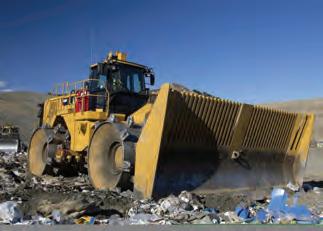
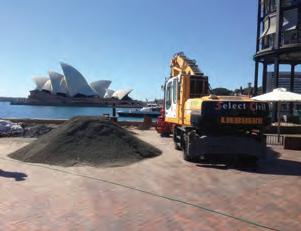
He believes that the integration of all three bottom lines will help enable growth in the industry while addressing issues surrounding longterm enterprise sustainability.
Another way Christian thinks the Australian industry can grow is to invest waste levy capital directly into recycling projects. He says that while waste levies are an effective way to pressure industry to consider alternative options to landfill, the money needs to be directly reinvested in reduction and recycling projects so all options can be explored.
While a lot of hurdles were created when China tightened its contamination restrictions, Christian sees a bright future ahead for the burgeoning Australian waste and recycling industry.
“This is the single greatest opportunity Australia has had to boost the sector – ever.”
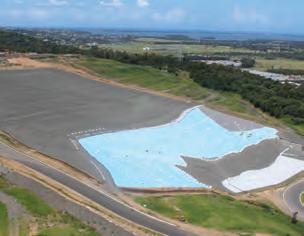
Advanced screening
ASTEC AUSTRALIA’S ADAM GORDON HIGHLIGHTS THE BENEFITS OF HIGH-FREQUENCY SCREENING FOR GLASS RECYCLING.
Equipment supplier Astec Australia’s passion for innovation has seen it position itself at the forefront of offering advanced technologies for materials recovery facilities and recyclers.
Adam Gordon, National Account Manager – Aggregate and Mining has been outlining the productivity benefits of high-frequency screening for glass recycling over conventional screens. brought to Australia in November 2016 to demonstrate their ability to screen very fine and difficult material.
“The demonstrations showed they could handle far more throughput compared to a conventional screen and keep running, whereas a conventional screen had to stop every two hours to unblock it.
“With the mass of particles being smaller, in order get separation of the particles for a smaller sized
Astec’s various plants offer waste operators the ability to remove deleterious materials.
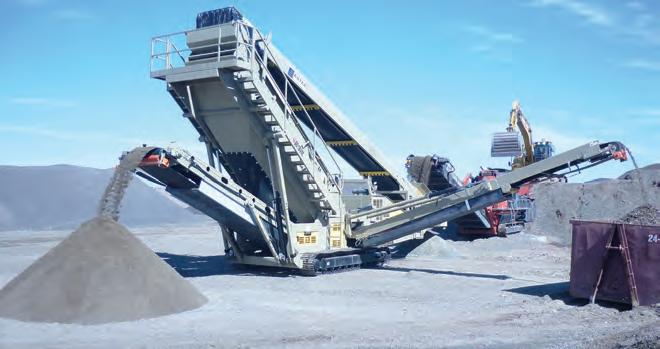
Astec’s various plants offers waste operators the ability to remove deleterious materials such as straws and labels through screening processed waste glass back into sand for reuse at significantly higher tonnages than what is currently available.
“Most conventional screens will only screen efficiently down to a four-millimetre particle, but as soon as the plasticity or moisture content increases, those screens become grossly inefficient and your tonnage drops,” Adam explains.
These high-frequency plants were fraction you need that high frequency to separate them above the surface tension between the particles,” Adam explains.
The operating principles of highfrequency screening works on the basic processes of stratification – as larger size particles rise to the top of the vibrating material bed and smaller sized particles sift through voids to the bottom. It also works on the probability of separation as particles that reach apertures are rejected if larger than the opening or passed through if smaller.
To maximise fines efficiency, Adam says it’s important that the right amount of frequency is induced to the bed of material causing stratification to take place. The angle should also match or pass the angle of repose of the material being screened, according to Adam.
He says the screening action can be adjusted to suit the material, with up to seven different exciters per deck that can be fine-tuned for speed and stroke to suit the mass directly above.
Adam says that many believe that in order to give the material the opportunity to pass through the opening, one must decrease the screen angle, but this is not true.
“By decreasing the angle, an excessive bed of material will build up on the screen, thus preventing stratification from occurring.
“With stratification and separation in mind, it becomes obvious that to more efficiently screen your product, one must increase the angle of the screen.”
Individually adjustable hydraulic motors enable revolutions per minute (RPM) and stroke adjustments, thus allowing stratification to take place.
Adam explains that conversely, there is only one stroke and RPM in conventional screens.
Some models available include the Tracked Astec FT2618VM High Frequency Screen, which is driven by 11 variable speed hydraulic vibrators running at up to 4200 RPM.
Overall, Adam is buoyed by the results and encourages operators to see the evidence for themselves.
SAVE
THE DATE









